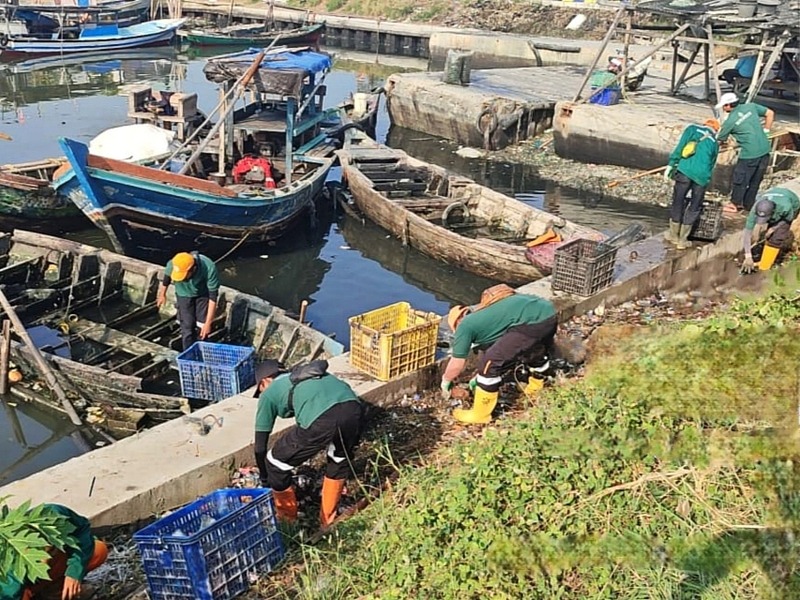Authorities in Jakarta took decisive action to address pollution at Cilincing Fisherman’s Dock, where 10 cubic meters of trash had accumulated in the mooring pond. The cleanup effort, carried out by the Unit for Water Waste Management (UPS BA) of the Jakarta Environmental Agency along with the North Jakarta Islands Environmental Office, was launched following complaints on social media. Head of Waste, Hazardous and Toxic Materials Management, Lukman Dermanto, emphasized that the piles of garbage reflected a continuing lack of public awareness about proper waste disposal. He reminded residents that the responsibility of protecting the city’s coastlines lies with everyone.
The cleanup, which began on August 25, 2025, required the mobilization of 30 personnel per day and a dedicated waste-collecting vessel. Lukman reported that six cubic meters were removed on the first day, followed by four cubic meters the next. Workers faced challenges as much of the waste was still floating offshore, forcing the team to proceed in stages. The collected garbage, consisting largely of styrofoam, plastic, bamboo, wood, cans, and even mattresses, was sorted before being transported to the Bantar Gebang landfill in Bekasi, West Java.
Local officials also joined the effort, with Acting Village Head of Kalibaru, Sutarto, deploying 10 members of the Orange Troops—Jakarta’s sanitation workforce—to support the cleanup. He praised the collaboration and underscored that lasting results will only come if residents change their habits. Sutarto called on citizens to recognize that discarded waste inevitably reaches the ocean, damaging coastlines and marine ecosystems. Cleanliness, he said, begins with individual responsibility and must become part of everyday life.
For residents, the swift response was a welcome relief. One local, Cahyadi, expressed gratitude for the government’s quick action and noted that such waste influxes are common during storms and high winds. With the trash now cleared, he said the dock looks cleaner and safer for the community. His remarks serve as a reminder that while authorities can act swiftly, the root of the problem lies in consistent public behavior and a culture of respect for the environment.
Alexander Jason – Redaksi



